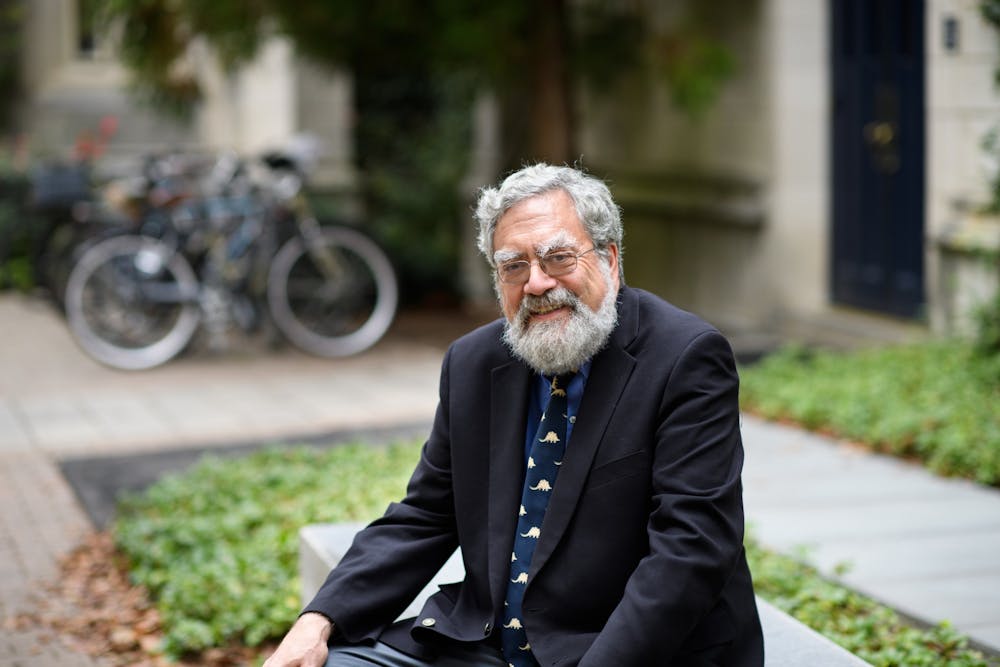Anthony Grafton is a historian of Renaissance Europe and the Henry Putnam University Professor of History at Princeton, where he has taught since 1975. His most recent book, co-authored with Maren Elisabeth Schwab of the University of Kiel in Germany, is “The Art of Discovery: Digging into the Past in Renaissance Europe,” published by Princeton University Press in November.
In addition to his teaching and research, Grafton served as President of the American Historical Association and is a member of the American Academy of Arts and Sciences, the American Philosophical Society, and the British Academy.
The Daily Princetonian sat down with Grafton to discuss his book. This interview has been edited for clarity and concision.
The Daily Princetonian: Tell me about the conception of this book. How did it come about?
Anthony Grafton: I wrote this book with a former visiting student of mine. Both of us were locked down during COVID-19; she was locked down in Germany, and I was locked down in Princeton. We originally were writing an article on one of the chapters in this book, but fairly soon, we realized that we had a book on our hands rather than just an article.
This is a book about the Renaissance, which historians usually describe as a rediscovery of the ancient world — Greeks and Romans. This means ancient books and that they learned how to read Greek again to read Homer and Plato in the original, but it also means objects. This was a great period for digging up and studying subjects that have been lost for a thousand years.
DP: How do you feel about the many Christian aspects of archaeology of this era in addition to what has seemingly been perceived as secular?
AG: Rome, almost deserted during the Middle Ages, was reviving. The popes came back in the 15th century, and it became a center for pilgrimage and business. The popes were mostly Italians or very rich aristocratic families from Spain, and the cardinals were also mostly from wealthy families. So, the cardinals began building these big palaces the size of a city block, and as they did that, they started digging up all kinds of things, so it’s really the revival of the city that throws the past back up.

Through the Middle Ages, there was a lot of interest in sacred relics, because it was believed that if one had either the bones of a saint, or a garment that the saint had worn, it would be a source of spiritual power, and so they were collected very eagerly. What we tried to show is that, in some ways, when people began to discover classical things, they used the same practices that they have used for discovering relics.
DP: You mentioned that your co-author is a classicist while you are a historian. Does it feel different from writing with another historian?
AG: It does! Lisa [Maren Elisabeth Schwab] is a real philologist, so she can analyze the vocabulary of a Latin text and figure things out that I probably would never come up with. In the sciences, everything is collaborative, and they work with younger people like graduate students and postdoctoral researchers. I thought I could learn from that, and when possible, I’ve found a student to work with.
DP: You will be co-teaching a class with Professor Suzanne Marchand on archaeology next semester. Is that related to this book?

AG: It is, but I never use my own books in my classes. Professor Marchand is a great historian working on archaeology of the 19th and 20th centuries. She taught here at the beginning of her career and is a brilliant and wonderful scholar and teacher. We’ll be looking at the discipline of archaeology in a very broad sense, starting with the ancient Greeks, who were very interested in their own temples and cities; they were very interested in relics that they found. We’ll then be looking through the Middle Ages down to the great burst of activity since the 18th century.
Allan Shen is a senior writer who often covers research and obituaries. He previously served as an associate news editor.
Please direct any corrections requests to corrections[at]dailyprincetonian.com.








